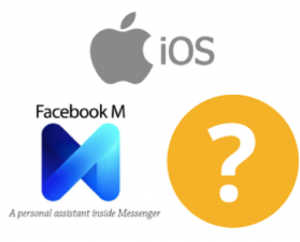The Doomsday Scenario – If Google Fails, Will Your Company Survive?
TL;DR: Relying too much on Google puts a business at serious long-term risk. Invest in other tactics like content marketing, social media marketing, and most importantly building customer loyalty to survive a decline in Google’s dominance.

Google is a behemoth. It is valued at more than $500 billion and according to analysts, the company could be the first to reach $1 trillion in valuation. That’s an astonishing 6% of the entire US GDP. So if a day was to come when Google failed, it would be no less than doomsday for countless businesses around the world. Does your business have the strength to survive such a catastrophe?
Is it even possible for Google to fail?
If there’s anything economic history has taught us, it is that no business is infallible. Lehman Brothers, Worldcom, Enron were all huge names before they went bankrupt. Sure, Google is bigger than all of these. But just as technology has sped up creation of massive businesses, disruptive technological changes are also making businesses collapse at an astonishing pace. Look at Blackberry, a pioneer of the mobile industry, which couldn’t keep pace with changes in its own industry and is now fast becoming irrelevant. There are serious questions about Microsoft’s future too if the decline in the PC industry continues, which it will.
Google used to be the internet’s homepage, but not any longer in a mobile first, app centric world.
So what could trigger Google’s downfall? Google has done well to ride the smartphone revolution. But the ecosystem and user behavior is changing so fast that no one is safe. Advertising contributes to more than 90% of Google’s revenue, of which more than 70% comes from Google’s own websites, largely through search queries on Google. It’s a massively successful business, because everyone uses Google to search for stuff. It used to be the internet’s homepage, but not any longer in a mobile first, app centric world.

Facebook is already experimenting with M, its AI based assistant in the messenger, which will help you find information, buy products, or book tickets, all on a chat interface. Siri tries to do the same on Apple devices, and it will only get better. You can be pretty sure that search as we know it will soon give way to other alternatives. And if our search behavior changes, Google’s revenue would come crashing down.
What will it look like?

A post-Google-search internet is likely to be much more decentralized, until one dominant player starts emerging. More importantly, for online businesses, it would mean a huge change in their marketing mix. Many businesses depend on Google organic results and ads for upwards of 50% of their business. The moment you take that away, many of them will lose huge chunks of their inbound leads and could become unviable. The sheer number of such businesses is hard to guess, but it will easily be in tens of thousands. Sure, people will still be buying things, but they will now be buying them from companies that would best adapt to the new paradigm of online marketing.
How to survive?
So what can you do to make your business Google-proof? Here are a few things to consider:
Red Bull has about 5 million subscribers on its YouTube channel because people love the content they create, not because they want to be informed about what’s happening at the Red Bull HQ.
Save time managing your social media accounts
Are you still managing your social media accounts directly from Facebook/Twitter/LinkedIn? Make your life easier by managing all your social media in one place, schedule posts, repeat posts, curate content and more. Try DrumUp now, it's free, forever.
- Build a loyal customer-base: The best way to keep your business ticking is having happy customers. Once you get a customer, retain her for life. Before you think marketing, think customer happiness.
- Build a loyal follower-base: Even if the customer is not buying right now, keep them engaged through content marketing. Create content that your customers care about, and get them to come back to your blog and social media accounts repeatedly. Not only for brand recall, but so that you can add value to you customers above and beyond the products you’re selling. Be a trusted part of their lives. Red Bull has about 5 million subscribers on its YouTube channel because people love the content they create, not because they want to be informed about what’s happening at the Red Bull HQ.
- Create partnerships: Cross-selling and platform integrations can be a major win, especially if you sell a digital product or service. You have the same customer base as many other companies out there. Can you find partners with a complementary offering? You could do it white-label or branded cross-selling. But it helps you both save on customer acquisition costs, and if you choose partners carefully, it could lead to explosive growth. Uber does this really well and often partners with event organizers. Slack has about 100 integrations with other platforms.
- Explore new channels: Look at you analytics data. Apart from Google, which other marketing channels are working for you? Can you grow those channels? Social media will of course be a big one on this list. Or it could be product review sites, industry blogs, or even direct visits from people who attended an event where you were mentioned. Can you do better at social media marketing? Can you attend more industry events? Can you forge relationships with industry experts who could spread the word for you? The more you grow these channels, the lesser you rely on Google, and the safer your business will be on doomsday.
Photo credits: Insider Monkey, photosteve101
